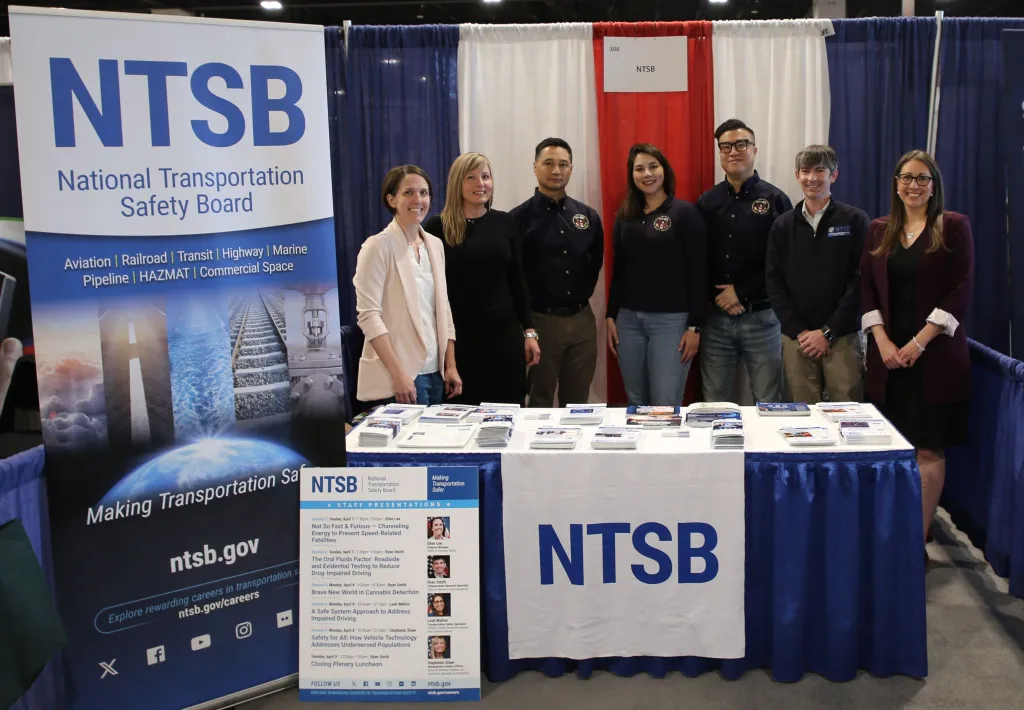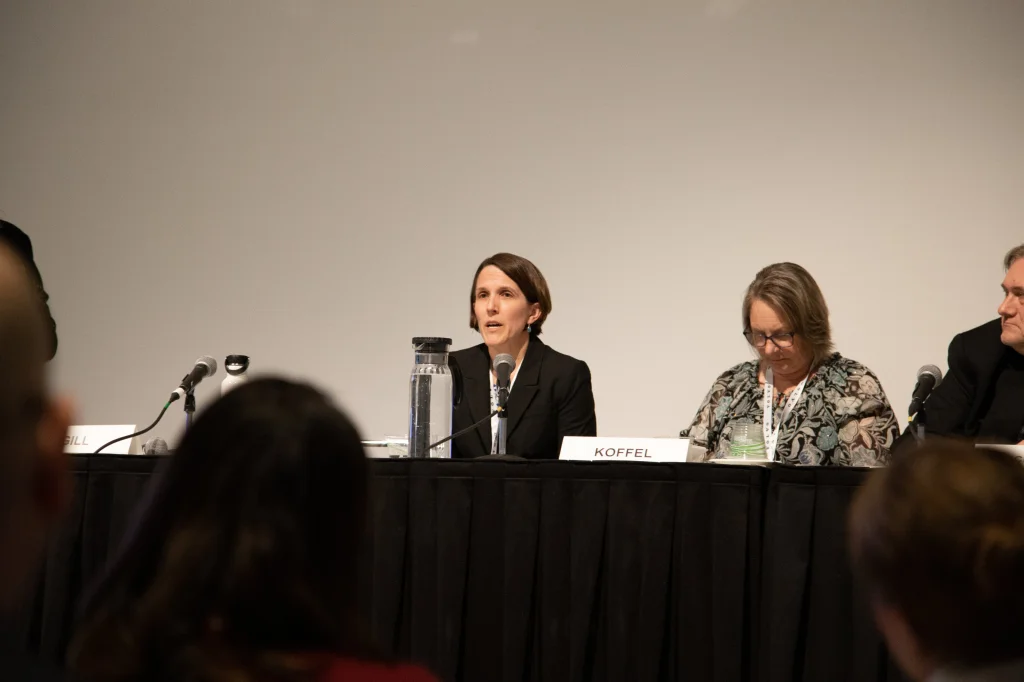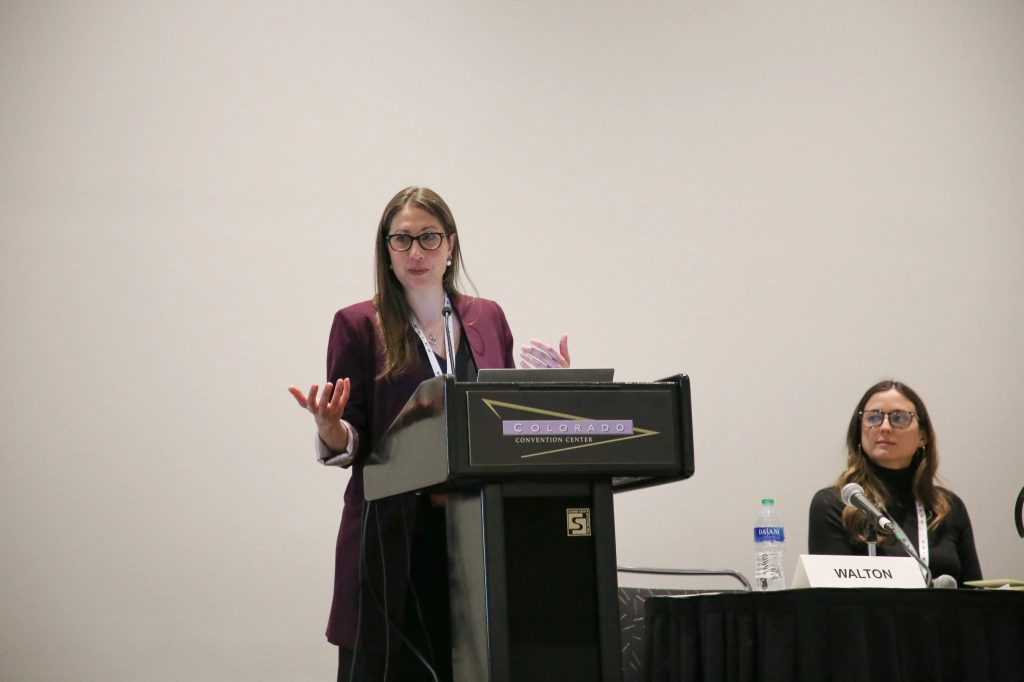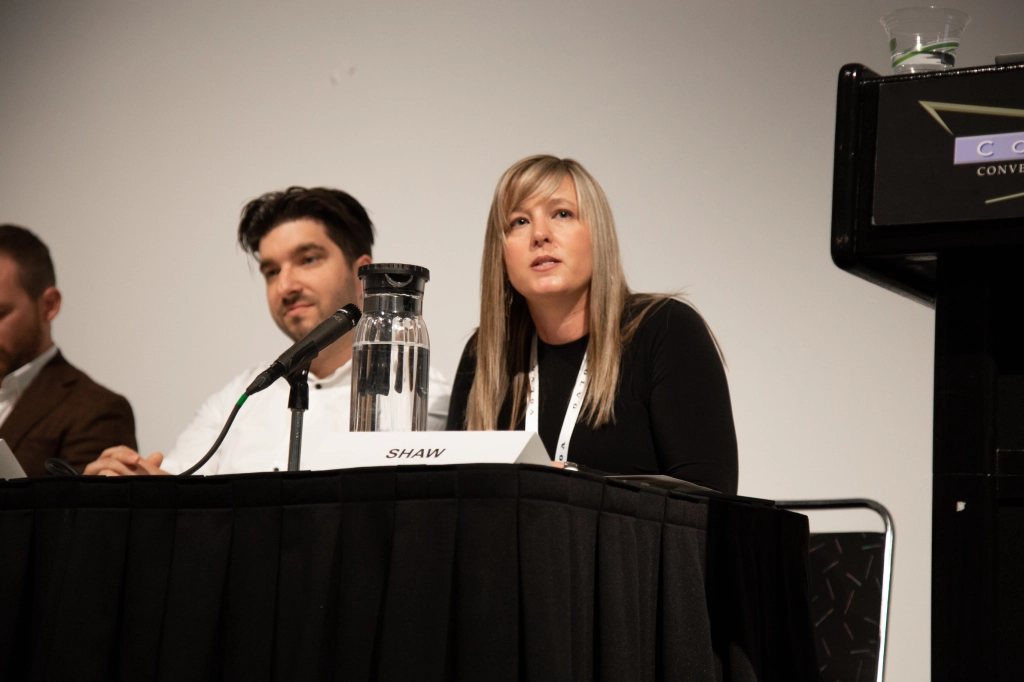Anthony Lam, NTSB Transportation Safety Specialist, Office of Safety Recommendations and Communications
Attendees stepped into the world of road safety innovation and collaboration at last week’s Lifesavers Conference 2024 in Denver, Colorado. Each year, experts, advocates, and policymakers convene at Lifesavers to tackle pressing issues shaping the future of safer roadways. From combating impaired driving to ensuring equitable access to cutting-edge vehicle technology, NTSB staff presented and moderated a variety of workshops that offered invaluable insights and strategies for creating a safer tomorrow.

NTSB Transportation Research Analyst Dr. Ryan Smith’s presentation, “The Oral Fluids Factor: Roadside & Evidential Testing to Reduce Drug-impaired Driving,” shed light on the rising interest in using oral fluid testing in roadside and evidential testing for drug impairment. With the landscape of cannabis legalization evolving and concerns about drugged driving escalating, the timing couldn’t be more crucial. Attendees gained insights into the nuances between preliminary and evidential testing, the mechanics of roadside testing, and the outcomes from states already implementing oral fluid testing. Discussions encompassed emerging challenges such as detecting novel drugs, ongoing research, and legal hurdles faced by states.
In 2022, we released a safety research report titled, Alcohol, Other Drug, and Multiple Drug Use Among Drivers, which found oral fluid is a valuable—but underused—biological specimen for detecting drug use by drivers. The report also recommended states modify their impaired-driving laws, if they have not already, to allow for oral fluid drug testing. Smith pointed this out in his presentation, adding, “It [oral fluid testing] can play a key role in supporting the enforcement of impaired-driving laws.”

Smith also organized and moderated the session, “Brave New World in Cannabis Detection,” which brought together leading-edge researchers in the field of cannabis detection. Cannabis impairment is a critical issue, and researchers discussed novel ways that cannabis use can be detected in drivers. In his opening remarks, Smith stated: “More than half of the US population now lives in a state where cannabis has been legalized. Recent NTSB research demonstrates the high prevalence of cannabis use among drivers, second in prevalence only to alcohol. Effective methods for detecting signs of cannabis impairment are critical for getting impaired drivers off our nation’s roadways.”
NTSB Office of Highway Safety Program Manager Ellen Lee gave a presentation on the dangers of speeding titled, “Not so Fast & Furious – Channeling Our Energy to Prevent Speed-related Fatalities,” which highlighted the urgent need to address speed-related fatalities through a comprehensive approach. Lee talked about the NTSB’s recent recommendations from our investigation of a crash in North Las Vegas, Nevada, where speeding and speeding recidivism were key.

Lee emphasized our findings that the driver in the crash was impaired and had received seven recent speeding offenses in the 5 years before the crash. “Despite repeated law enforcement actions, the driver’s record was inaccurate (showing only one speeding violation) and local courts treated this driver as a new offender for each violation,” Lee said.
Drawing from NTSB crash investigations and real-world examples, attendees learned about effective countermeasures and community engagement strategies. From leveraging data insights to advocating for vehicle safety technologies and infrastructure enhancements, the workshop underscored the importance of collaboration to curb excessive speed and protect lives on the road.
NTSB Safety Advocate Leah Walton moderated a thought-provoking discussion in her session, “A Safe System Approach to Address Impaired Driving” exploring where and how impaired driving fits into the five pillars of the Safe System Approach. Walton and her panel explored the multifaceted challenges posed by impaired driving, particularly concerning polysubstance impairment. Attendees gained a deeper understanding of the prevalence and risks associated with this behavior, along with potential policy interventions and enforcement strategies.

In Walton’s opening remarks, she emphasized, “We cannot have a safe system while impaired driving is killing over 13,000 people a year. To achieve zero fatalities, we must expand our view of impaired-driving prevention through the Safe System lens.” With an emphasis on partnership-building at both the state and national levels, the workshop provided a roadmap for stakeholders to tackle impaired driving head-on and enhance road safety.
Stephanie Shaw, NTSB Management Analysis Officer, moderated the session, “Safety for All: How Vehicle Technology Addresses Underserved Populations.” Exploring design considerations, benefits, and challenges, attendees learned ways to extend these advancements to underserved populations. Shaw emphasized the importance of building a system that guarantees safe transportation for all who use it, regardless of socioeconomic status or mode of travel, whether it be personal vehicle, bike, walking, rolling, hailing a rideshare or an autonomous shuttle service, or taking public transportation. This sentiment encapsulated the overarching theme of inclusivity and accessibility discussed throughout the workshop.

The Lifesavers Conference serves as a catalyst for meaningful dialogue and collaboration in advancing road safety initiatives. By harnessing innovation, data-driven approaches, and community engagement, attendees are empowered to drive tangible change and create safer roads for everyone. We hope to continue these important dialogues at next year’s Lifesavers Conference in Long Beach, California!
